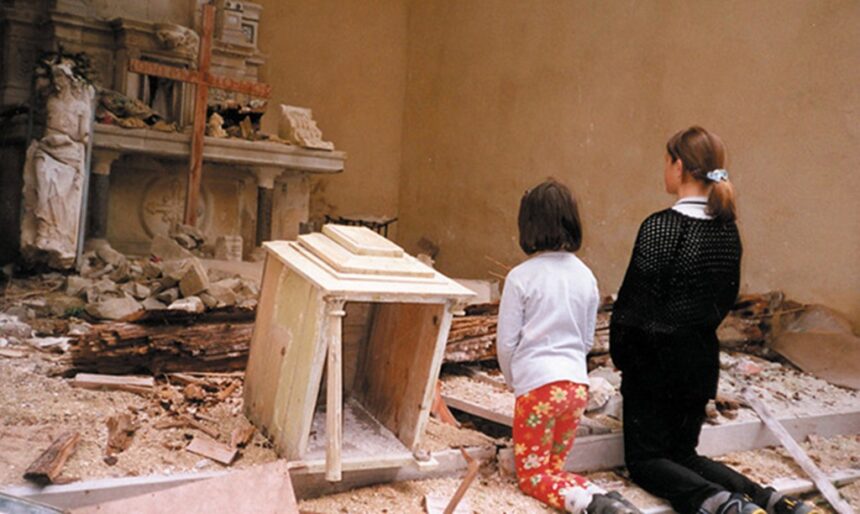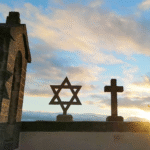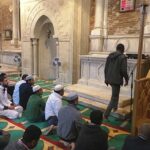JERUSALEM – In the ancient regions where Christianity began, followers are caught in ongoing violence, religious hatred, and terrorism. From the battered streets of Aleppo to the struggling villages of northern Iraq, Christians from both Eastern Catholic and Orthodox backgrounds face threats that put their entire future at risk.
Pope Leo XIV, in his early days as pontiff since his election on May 8, 2025, has turned the world’s attention to their struggle. During the Jubilee of the Eastern Churches on May 14, he called on global leaders to help these “martyr Churches” and to push for peace in areas torn apart by war.
He warned of the deep crisis facing Christians from the Holy Land and Ukraine to Lebanon, Syria, and beyond.
The facts are stark. Christian communities in the Middle East and parts of Africa continue to shrink quickly. Groups that have worshipped in the same places for centuries are now a fraction of their former size. In Iraq, the number of Christians has dropped from 1.5 million in 2003 to less than 150,000 today.
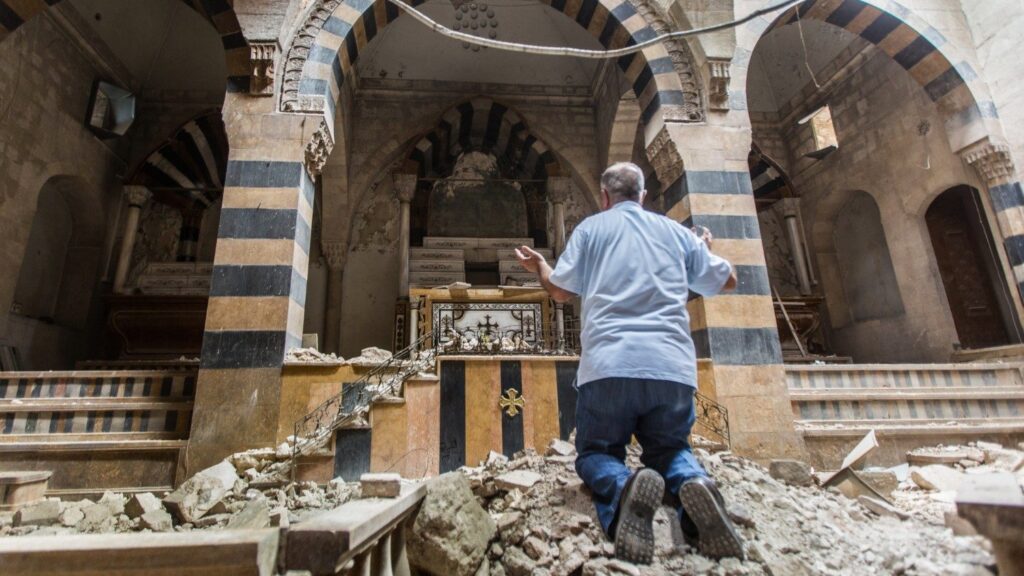
Christians persecuted in Arab Countries
Conflict, especially from groups like the Islamic State, has forced many out. In Syria, Christians once made up a tenth of the population. Since the civil war began in 2011, half have left, escaping both violence and targeted attacks.
In Lebanon, economic collapse and unstable politics have made things worse, while in the Holy Land, Palestinian Christians often find themselves displaced by ongoing conflict.
Pope Leo XIV, the first American to hold the papacy, has made the protection of Middle Eastern Christians a key part of his work. Speaking to thousands of Eastern Catholic pilgrims at the Vatican, he praised those who stay in their homelands and resist the urge to leave.
He said, “Christians must have a real chance to live in their native lands with the safety and rights they need.” He called on world leaders to put down weapons and speak openly, saying, “People want peace, and I ask leaders from my heart: Let’s meet, talk, and negotiate. War is not our only choice.”
For Eastern Christians, the violence is not just a figure of speech. It’s their daily experience. In the Holy Land, Palestinian Christians in Bethlehem and Gaza face growing dangers. Since October 2023, Israeli operations in Gaza have killed over 53,000 people, many civilians, including Christians from communities like Holy Family Parish.
The blockade on aid has left many, including Christians, without food and shelter. In the West Bank, attacks from settlers have threatened entire villages and their claims to family land. Pope Leo’s urgent call for a ceasefire and humanitarian aid matches the cries of local church leaders.
In Syria, years of civil war have devastated Christian groups like the Syriac and Chaldean Catholics, who still pray in the ancient language of Aramaic. Many of their churches in Aleppo and Damascus stand empty, damaged, or destroyed as families flee to Europe or North America.
In Lebanon, the Maronite and Melkite Greek Catholic Churches face economic disaster and growing tensions between faith groups, which push even more Christians to search for safety abroad. By calling these communities “martyr Churches”, Pope Leo uses a phrase from Pope Francis to describe their endurance in the face of loss.
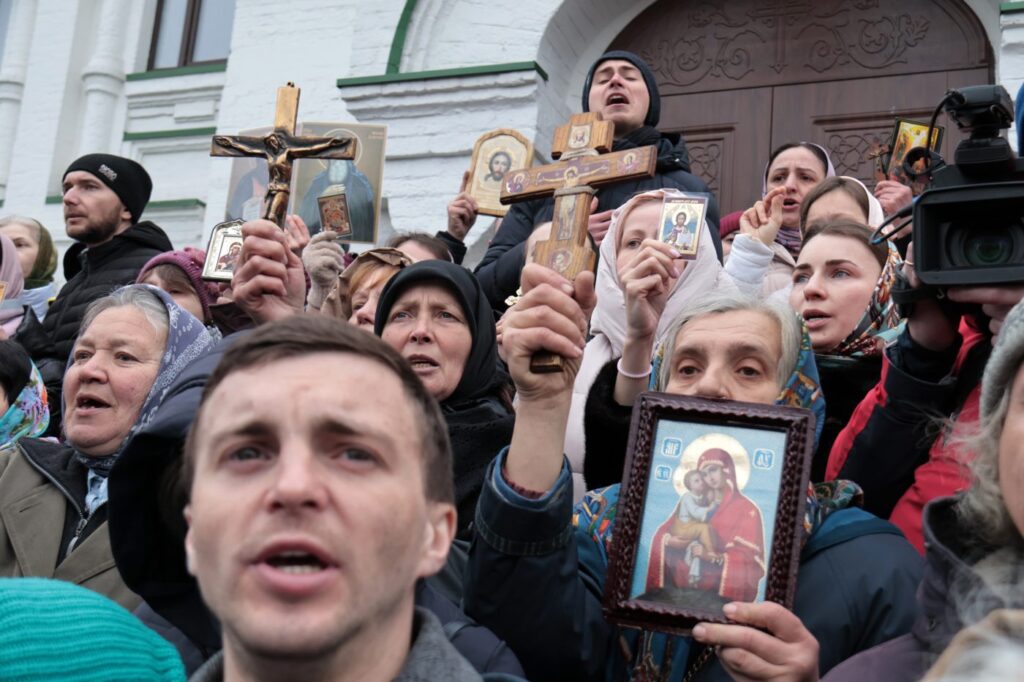
Churches Destroyed, Clergy Targeted
Ukraine is also a crisis point for Eastern Christians, especially the Ukrainian Greek Catholic Church led by Archbishop Sviatoslav Shevchuk. The Russian invasion, now entering its third year, has destroyed churches and targeted clergy in the east.
Shevchuk attended the Vatican jubilee and said the Pope’s support gave comfort, describing it as an embrace in a time of pain. Pope Leo has already discussed possible peace talks with Ukrainian President Volodymyr Zelenskyy, hoping the Vatican can help bring both sides together.
Across Africa, Christians face similar dangers. In Ethiopia’s Tigray region, the civil war from 2020 to 2022 killed or displaced thousands of Catholics and Orthodox Christians, with their churches looted and vandalized.
In Nigeria, extremist groups such as Boko Haram have killed more than 10,000 Christians since 2015, kidnapping many others and burning homes. These attacks, often driven by religious hatred, force families to leave and weaken the Christian presence in the area. Pope Leo’s mention of Tigray in his speech was a rare public recognition of a tragedy that rarely makes headlines.
The Pope’s concern also reaches those who have left their original homes. In the West, many Eastern Christians worry about losing their unique traditions as they try to fit in.
Pope Leo has asked the Vatican’s Dicastery for the Eastern Churches to help Latin-rite bishops support these communities so their “priceless heritage” is not lost. He reminded pilgrims that the Church needs the spiritual depth of Eastern traditions, from their worship to their focus on penance and resurrection.
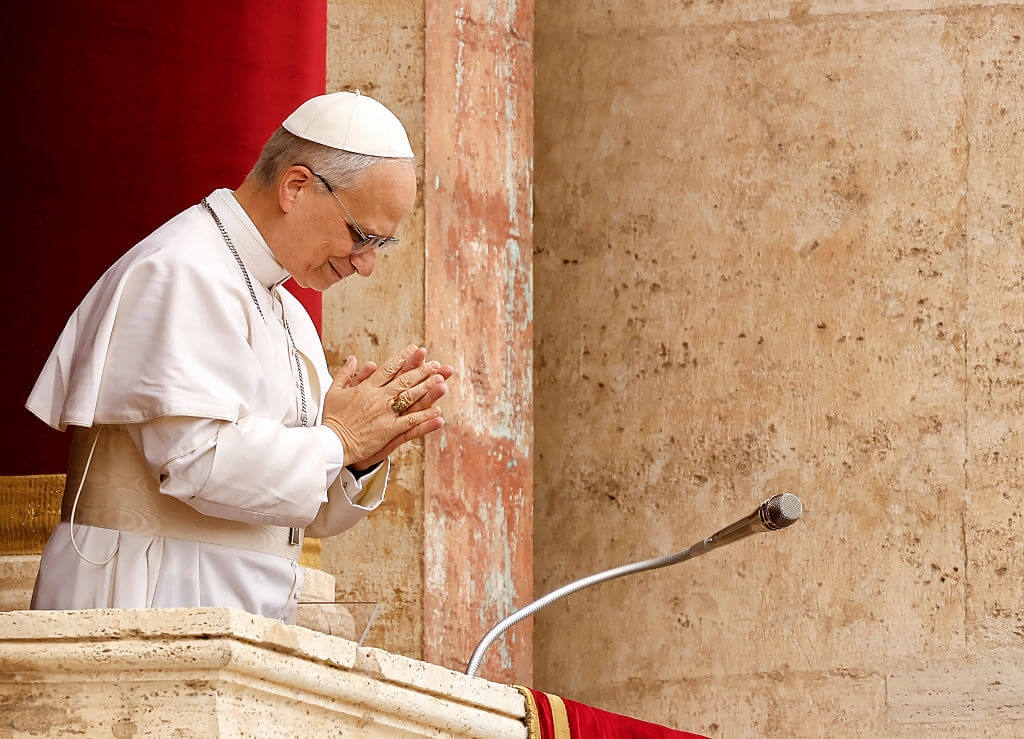
Pope Leo’s Pleas for Peace
The falling number of Christians in these regions is not just a loss in numbers but a blow to culture and faith worldwide. Eastern Christians keep alive ancient practices and languages that tie directly back to the earliest days of the Church.
Their strength in the face of suffering is powerful, but it comes with heavy sacrifices. “Who, better than you, can sing a song of hope even amid such hardship?” Pope Leo asked, quoting St. Ephrem the Syrian and pointing to the hope of Easter.
Hope is not enough to stop the violence. The Pope’s plea for peace comes with a promise to try to bring the sides together. The Holy See stands ready to help begin talks, and this has already caught the interest of world leaders.
Ukrainian officials see a chance for progress, and Middle Eastern patriarchs, like Cardinal Louis Raphaël I Sako of the Chaldean Church, hope his attention will help their call for justice.
As Christians in the East face terrorism, hatred, and violence, Pope Leo XIV’s message is both a warning and a call for support. His focus on staying strong reflects the spirit of these “martyr Churches”, but his demand for rights and security shows how much help is needed. He reminded the world not to fall into the trap of seeing others as enemies, but as fellow human beings.
For Christians in the East, staying in their homelands is an act of bravery every day. As their numbers fall, the risk grows, not just for them but for all who value faith and tradition.
Pope Leo XIV has made it clear: the violence must be met with peace, open talks, and real help for those who suffer. Whether his call leads to real change remains to be seen, but for now, his voice brings hope to people who need it most.
Sources: Catholic News Agency, Vatican News



